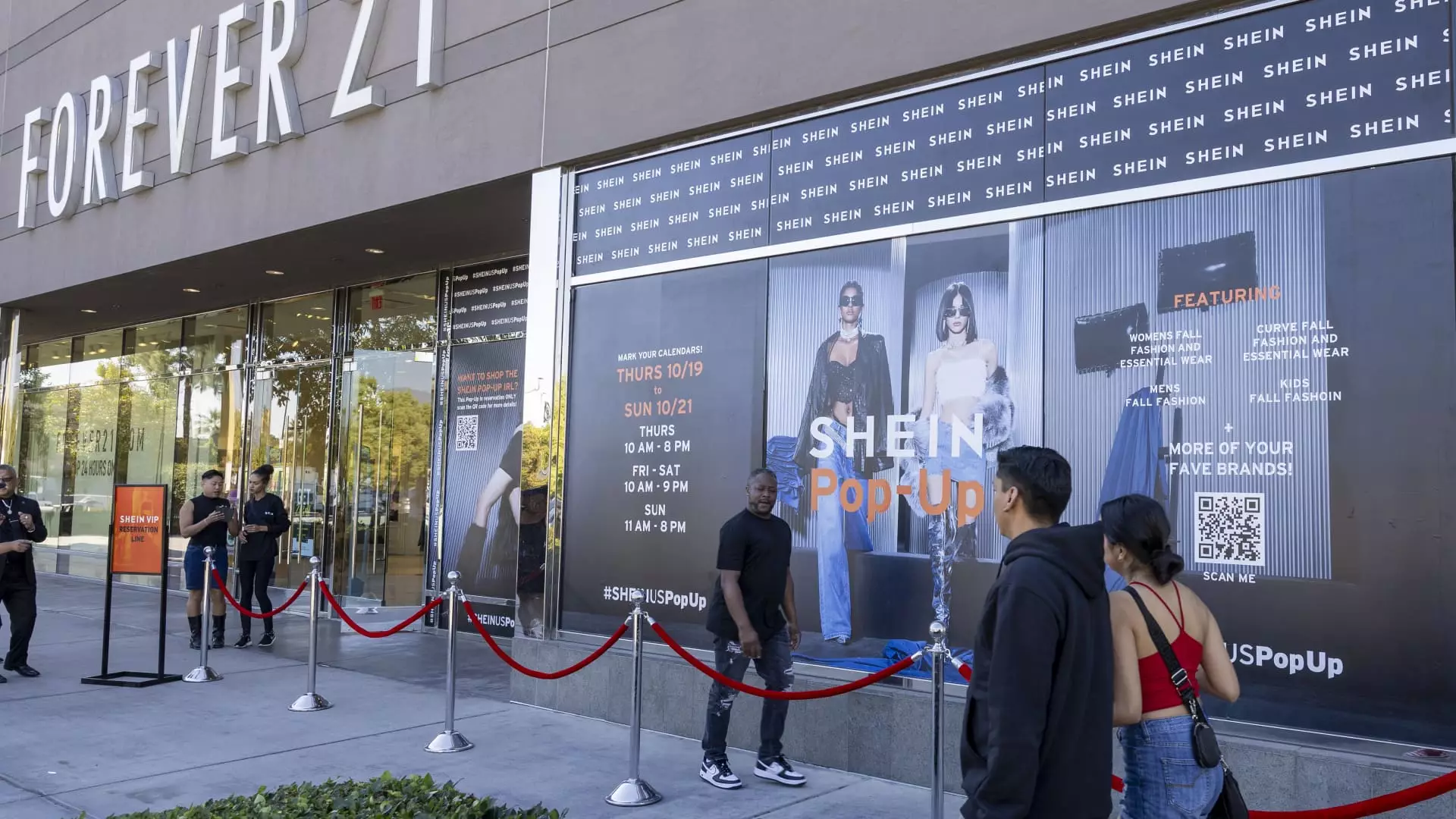Forever 21, a once prominent player in the fast-fashion market, is currently facing financial difficulties that have led the company to request a rent reduction of up to 50% from its landlords. The company has over 380 stores in the U.S. and is struggling to keep up with the evolving landscape of retail. While the brand has not hired advisors or filed for bankruptcy protection for a second time, it is actively trying to restructure its leases to cut costs and stay afloat amidst declining sales.
One of the primary struggles faced by Forever 21 is its position in the oversaturated fast-fashion market. The brand has historically had issues with managing inventory, understanding consumer behavior, and responding quickly to changing trends. These challenges have been exacerbated by the rapid expansion of the company during its growth phase, which left it unable to invest in its supply chain and adapt to the evolving needs of its customer base.
The financial struggles of Forever 21 have also had a negative impact on Sparc Group, the joint venture that includes Authentic Brands Group, Simon Property Group, and other partners. Sparc Group, which operates several formerly bankrupt retailers in addition to Forever 21, has been scrutinizing its budgets and contending with its own financial issues. The difficulties faced by Sparc Group highlight the complex nature of merging legacy brands and centralizing operations in an increasingly competitive retail environment.
Forever 21’s financial distress is further underscored by its payment patterns to vendors, with data indicating that the company has consistently paid its suppliers late over the past year. Late payments can serve as a red flag for broader financial troubles within a company, and Forever 21’s payment history reflects the challenges it is currently grappling with. The industry average for vendor payments stands in stark contrast to Forever 21’s payment patterns, pointing to deeper issues within the organization’s financial health.
The rise of ultra-fast-fashion retailers like Shein and Temu has posed a significant competitive threat to traditional players like Forever 21. The speed and efficiency of these newer brands in manufacturing and responding to trends have left legacy brands struggling to keep pace. The inability to match the rapid production and distribution capabilities of companies like Shein and Temu has placed Forever 21 at a disadvantage in the fast-fashion landscape.
Reflecting on the challenges faced by Forever 21, Authentic Brands CEO Jamie Salter has acknowledged that acquiring the brand was a misstep. The failure to recognize the competitive threat posed by brands like Shein and Temu earlier on has further complicated the brand’s recovery efforts. However, Salter’s willingness to partner with Shein and explore new avenues for collaboration indicates a potential shift in strategy for Forever 21. By leveraging the strengths of innovative partners like Shein, Forever 21 may be able to revitalize its brand and navigate the changing dynamics of the fast-fashion market.
The ongoing struggles of Forever 21 serve as a cautionary tale for retailers looking to thrive in the fast-fashion industry. The brand’s challenges with inventory management, rent negotiations, and competition underscore the need for adaptability and innovation in a rapidly evolving market. By addressing its financial issues, forging strategic partnerships, and embracing new business models, Forever 21 may be able to overcome its current obstacles and carve out a successful future in the fast-fashion landscape.


Leave a Reply